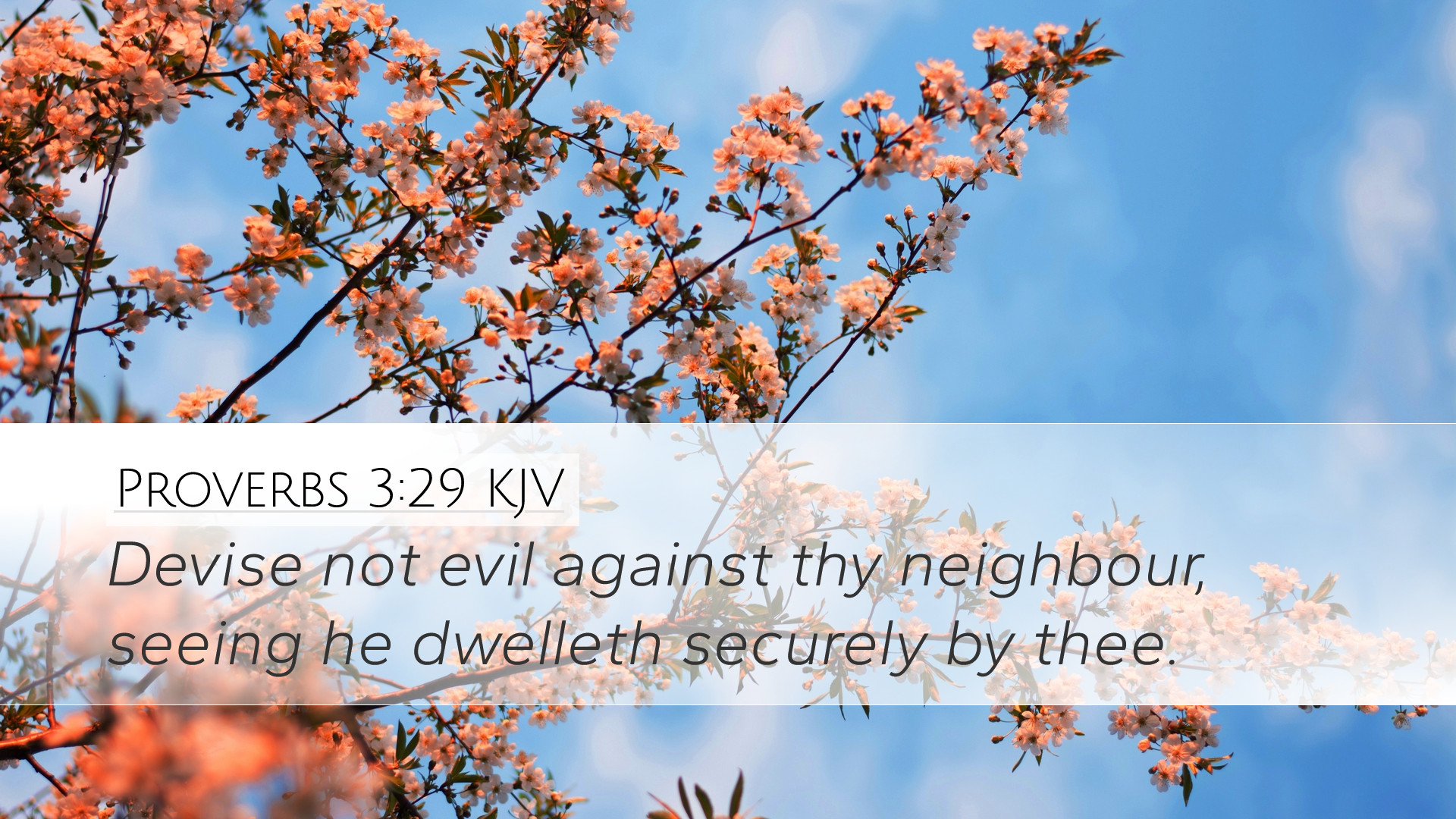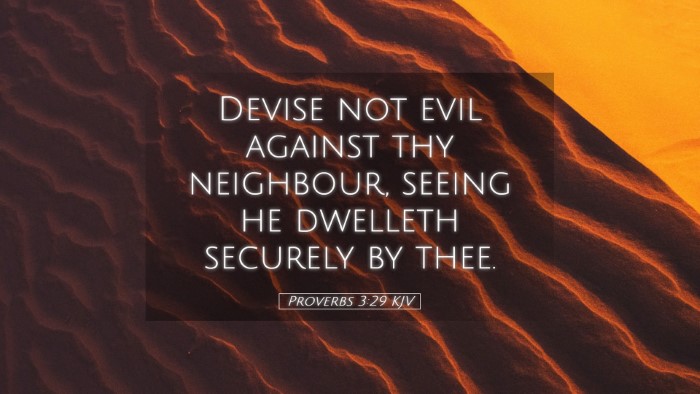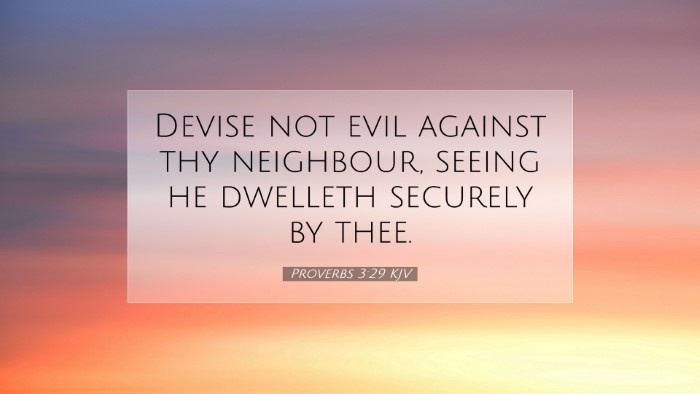Commentary on Proverbs 3:29
Verse Text: "Devise not evil against thy neighbour, seeing he dwells securely by thee." (KJV)
Introduction
Proverbs 3:29 serves as a poignant reminder of the ethical and moral responsibilities we have
towards our neighbors. This verse emphasizes the necessity of maintaining integrity in our
relationships, advocating against the plotting of harm towards those who are in a position
of trust and security in our lives.
Exegesis and Theological Insights
The phrase "Devise not evil" suggests a deliberate mindset. The intention behind our thoughts
directly influences our actions. Whether in direct relationships or within a community context,
harboring malice can lead to grievous consequences.
-
Matthew Henry's Commentary:
Henry emphasizes that this verse warns against premeditated harm. He notes that true wisdom
encourages harmony among neighbors. Dwelling securely implies a delicate trust established
within relationships, where evil intentions contradict the sanctity of such bonds.
-
Albert Barnes' Notes:
Barnes explains that the focus is on the responsibility of individuals to cultivate goodwill
and peace. He points out how we are often oblivious to the vulnerabilities of others, thus
legitimizing the need for wisdom in our words and actions. This caution serves to fortify
communal strength against discord.
-
Adam Clarke's Commentary:
Clarke adds an intense layer of understanding by reflecting on the consequences of evil
plotting. He interprets the verse as a strong admonition against treachery, suggesting that
the optimal societal condition is one wherein individuals can coexist without fear or suspicion.
Clarke also notes the importance of the social contract established by living harmoniously.
Pastoral Applications
This verse is particularly significant for pastors and leaders within congregations. Encouraging
members to build trust and foster a secure environment should be a top priority. The ethical
implications of 'not devising evil' extend into everyday interactions, suggesting that of all
places, the church should be a haven of peace.
Leaders should hold themselves accountable to foster relationships characterized by openness,
where congregants feel safe sharing burdens without fear of retribution or malice. This promotes
a culture rooted in the love and guidance of scripture.
Scholarly Reflections
For theologians and Bible scholars, Proverbs 3:29 invites a critical examination of the
human condition in light of divine ethics. It encourages deep reflection on how
sinfulness can manifest in communal settings, advocating for a model of grace and
forgiveness in our treatments of one another.
Scholarship can explore the broader implications of neighborly duties, linking them with
Jesus' teachings in the New Testament. The essence of loving one’s neighbor as oneself to
cultivate a spirit that refrains from evil plotting enriches this discourse, showcasing
the continuity of biblical ethics throughout scripture.
Conclusion
Ultimately, Proverbs 3:29 presents a timeless ethical injunction that continues to resonate
across generations. It urges us to reflect on our intentions towards one another while
fostering a community built on trust and security. Embracing this teaching not only honors God
but also enhances the relational fabric of our lives.


